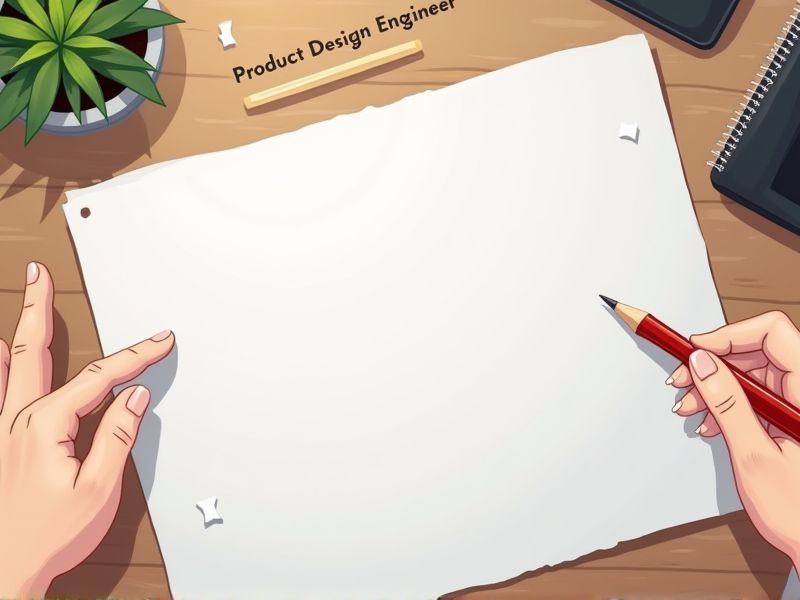
Product Design Engineers must stay attuned to rapidly evolving technologies, which places a premium on specialized knowledge and skills. Certifications enhance technical expertise, demonstrating a clear capability in using industry-standard tools and methodologies. Employers often seek candidates with certified credentials to ensure proficiency and adaptiveness in dynamic project landscapes. Consider these important certifications for a career as a Product Design Engineer.
Certified SolidWorks Professional (CSWP)
A Certified SolidWorks Professional (CSWP) credential validates a Product Design Engineer's expertise in using SolidWorks, a crucial software in product design, which can significantly enhance job prospects. Employers often seek CSWP-certified engineers because the certification proves proficiency in complex modeling skills, ensuring high-quality design outputs. Holding a CSWP can lead to increased efficiency in the design process due to a deep understanding of the software's advanced features. The certification also indicates a commitment to maintaining up-to-date skills, essential for navigating the rapidly evolving landscape of engineering design.
Autodesk Certified Professional: AutoCAD
The Autodesk Certified Professional: AutoCAD certification validates a product design engineer's proficiency in industry-standard design software, ensuring their competence in creating accurate technical drawings. This certification enhances their skills in 2D and 3D modeling, which is essential for developing precise and innovative design solutions. Employers often seek certified professionals, as this credential demonstrates commitment to continuous learning and up-to-date knowledge of AutoCAD tools. The certification improves communication with other team members, reduces design errors, and increases productivity in the product development process.
Autodesk Certified Professional: Inventor
The Autodesk Certified Professional: Inventor certification confirms an engineer's proficiency in using Autodesk's Inventor software, a critical tool in product design for creating detailed 3D digital prototypes. Possessing this certification demonstrates a comprehensive understanding of the Inventor platform, which boosts credibility and enhances career prospects in the field. Most industries prefer professionals who can efficiently use advanced CAD tools, and this certification assures employers of an engineer's capability to handle complex design tasks. In competitive job markets, having this certification can differentiate a product design engineer from other candidates, making them more attractive for roles requiring specialized design skills.
PTC Creo Parametric Certification
Obtaining a PTC Creo Parametric Certification enhances a Product Design Engineer's expertise in using advanced CAD tools crucial for efficient product development. This certification verifies a professional's proficiency, increasing their employability and potential to secure higher positions in competitive markets. Mastery in Creo software can lead to more innovative and precise design solutions, directly impacting a company's ability to streamline production and reduce cost. Certified engineers are often trusted to lead projects, fostering leadership skills and contributing to more cohesive and productive engineering teams.
New Product Development Professional (NPDP)
The expertise of a New Product Development Professional (NPDP) ensures strategic alignment in product design, streamlining processes from initial concept to market introduction. Their skills in risk management and market analysis mitigate potential design flaws and financial setbacks for Product Design Engineers. By leveraging structured methodologies, NPDPs enhance collaboration and communication across multidisciplinary teams. Their insights into consumer needs and emerging trends guide engineers to create innovative and competitive products.
Certified Manufacturing Engineer (CMfgE)
A Certified Manufacturing Engineer (CMfgE) is essential for a Product Design Engineer because they possess expertise in manufacturing processes and techniques, ensuring designs are both feasible and cost-effective to produce. This certification imparts an understanding of material properties and capabilities, crucial for optimizing product performance and longevity. Certified individuals also bring knowledge of quality standards and regulatory compliance, minimizing the risk of design flaws leading to costly recalls. Their skills in process optimization contribute to more efficient production workflows, reducing waste and enhancing overall productivity.
Certified Quality Engineer (CQE)
Certified Quality Engineers (CQEs) possess expertise in quality control techniques, which aids product design engineers in enhancing the reliability and durability of products. The involvement of a CQE in the design process helps identify potential quality issues early, reducing the risk of costly redesigns and recalls. Knowledge of statistical analysis tools by a CQE can optimize product performance, contributing to efficient resource use and cost management. CQEs also ensure compliance with industry regulations, safeguarding the product and company from legal complications.
Six Sigma Green Belt Certification
Earning a Six Sigma Green Belt Certification equips a Product Design Engineer with a structured approach to problem-solving, which enhances efficiency in the design process. The certification offers tools for data-driven decision-making, ensuring higher quality and reduced variability in products. It fosters a culture of continuous improvement and lean methodologies, which align with the goals of innovative product design. The enhanced skillset can boost collaborative efforts with cross-functional teams, leading to more successful and timely project outcomes.
Lean Six Sigma Certification
Achieving Lean Six Sigma Certification equips a Product Design Engineer with skills to systematically identify inefficiencies, leading to enhanced design processes. This certification fosters a mindset to implement data-driven decision-making, reducing errors and improving product quality. By understanding Lean principles, engineers can streamline processes, cutting down development time and costs. The knowledge of Six Sigma tools enables engineers to predict and solve potential design issues, enhancing reliability in product outputs.
Product Lifecycle Management (PLM) Certification
Product Lifecycle Management (PLM) Certification equips Product Design Engineers with essential knowledge to streamline product development processes, leading to more efficient workflows. This certification fosters a deeper understanding of how to integrate various stages of product development, resulting in improved collaboration and reduced time-to-market. By mastering PLM tools and methodologies, engineers can enhance product quality and innovate designs that align with market demands. The certification ensures that engineers remain competitive in the industry, adapting to evolving technological advancements and best practices.
Summary
By obtaining certifications, you gain enhanced credibility and expertise in product design. This often results in increased job opportunities and the potential for higher salary outcomes. Employers see certifications as a validation of skills, which can lead to responsibilities in more complex projects. Consequently, this can accelerate career growth and professional development in the design field.
